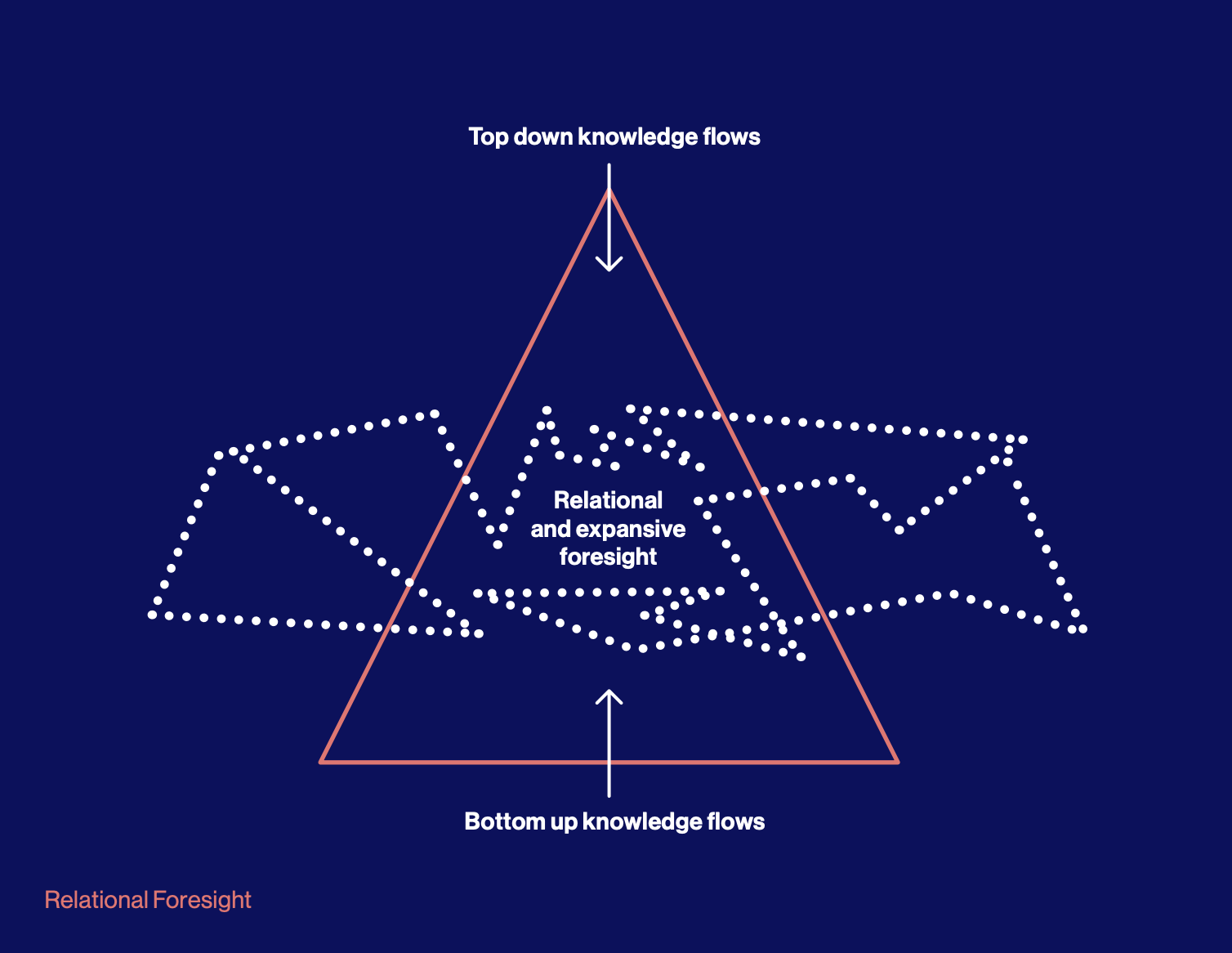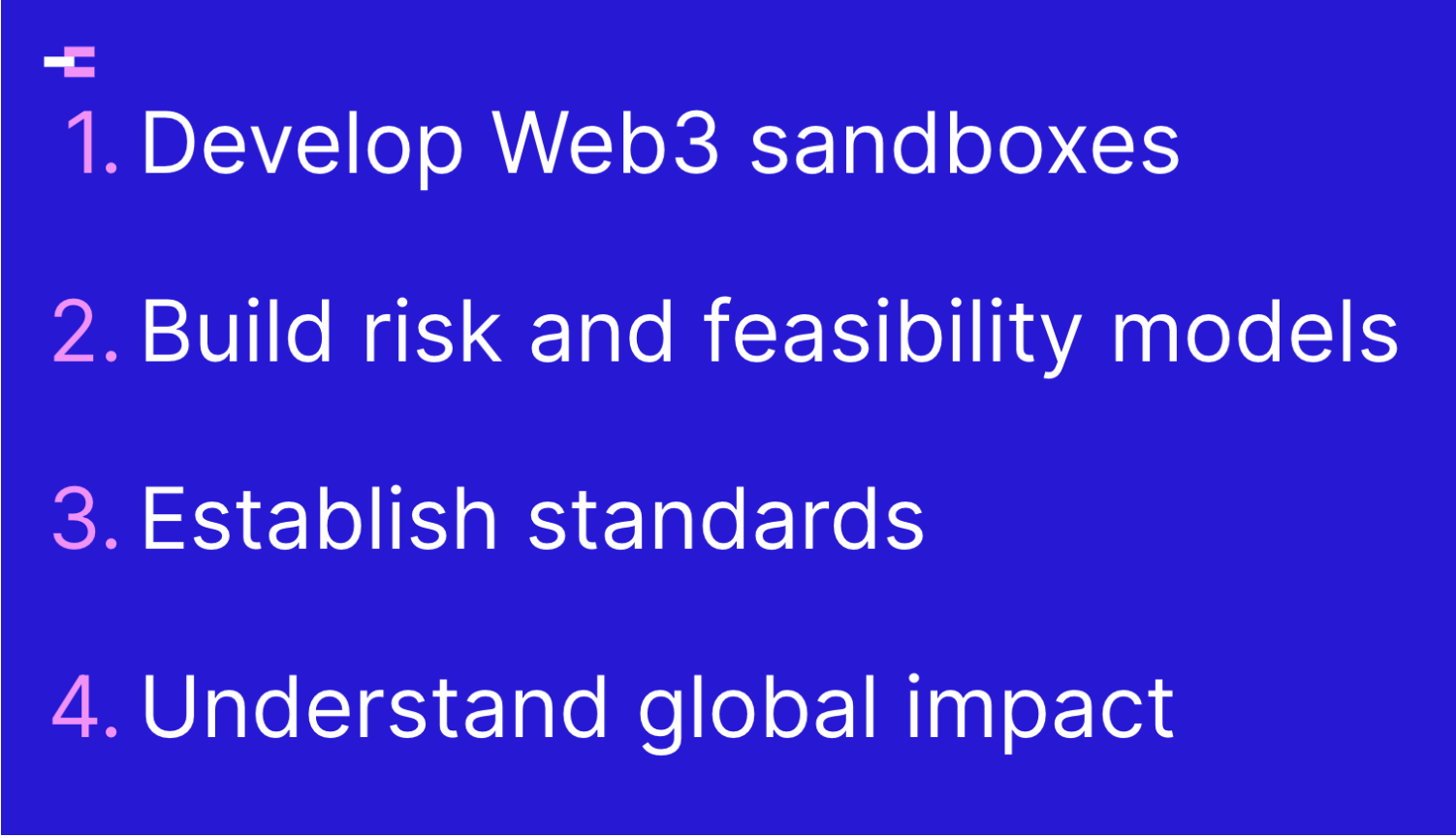2022: A Careful Trouble Year in Review
We have had a great year this year making lots of Careful Trouble. This year in review includes our people and culture news, an overview of our Careful Industries’ foresight and strategic projects, and some highlights from Promising Trouble’s adventures in community tech.
People and culture
It’s hard to believe it, but this year has been our first fully operational year!
During 2021 we went from one person (me) to six, and set up our ways of working as a fully remote, flexible working team, spread across the UK and beyond. That meant that in 2022 we could focus more on people development and organisational culture, and it’s been such a privilege getting to know and collaborate with my fellow Careful Troublemakers. Ashleigh Folan, Head of Ops, has been at the helm of this, stopping us from getting into too much trouble, while our Co-ordinator Aurélie Coulibaly has helped to continually refine and establish our processes and ways of working.
At the start of the year we welcomed Anna Dent as Head of Research for Promising Trouble. Anna had previously freelanced with us, and it was great to welcome her into the fold. In October we said goodbye to our first leaver, Craig Grady, who had spent the previous fifteen months running the Emerging Infrastructure Design Lab (we’re looking forward to publishing the evaluation report for this piece of work in 2023) and in January we’re delighted to welcome Rachael Burton, who will be joining us from Watershed as our first Project Manager.
We’ve been supported since day one by Michelle Agyei and Tacita Small at The Small HR Company who have shared so much practical wisdom with us as we’ve grown and developed. As well as away days in Bristol and Manchester, we spent a few sessions with Hannah Thomas Uose from Align to help refine our strategic goals and improve our decision making.
Going into next year, we’re going to run a 4-day week trial and introduce Climate Leave, four days a year that we every team member can use at their discretion to do things like make better travel choices, repair and retrofit the places we live, and volunteer with climate-focussed charities.
We worked with Kim Plowright and Honest Studio to develop our branding and improve our digital presence. Given we’re so small, our message is quite complex, and we benefited hugely from their patience, creativity and vision. We’ve also collaborated with writer and editor extraordinaire Georgia Iacovou across the year on many of our projects, and are immensely grateful for her sensitive editing and excellent questions.
Careful Industries Projects
An image from Belonging, Care and Repair, by Honest Studio
Through Careful Industries, we work with clients to help them shape the future and solve difficult problems in equitable ways. Here are some of the highlights from 2022.
Foresight projects
Our foresight work is led by Anna Williams, working with myself and design researcher Dominique Barron. Our approach to foresight is relational and pluriversal, committed to holding many possible outcomes rather than promoting technodeterminism or market interests, and we’ve been fortunate enough to explore a wide range of topics throughout 2022.
We started the year collaborating with Mallory Knodel on a project for Open Society Foundations, examining the role of foresight in the digital rights movement. Our finding from this work was that foresight abounds across the movement, but is often ignored by policymakers and decision makers.
In the spring, we published Belonging, Care and Repair: Possible, Plausible and Just Futures for Civil Society. This was the final output from the Civil Society Foresight Observatory, a project that began its journey with the National Lottery Community Fund in 2021 and which we self-funded for the final furlough.
The object of this project was to show that civil society can and should shape the future, not just be called upon to tidy up when things go wrong. Working with Steph Pau and a group of observers from across civil society, we developed three plausible futures for 2036, focussing on intergenerational repair, climate care, and spiritual development. We can’t often share the work we do publicly, so it was wonderful to be able to publish this, and we have been thrilled to present it in a range of surprising contexts over the course year.
During 2023, we are going to develop the outcomes from this further, and create a speculative new government department for care and repair. If you’re interested in supporting or collaborating on this, let us know!
In the autumn, we shared findings from work we had been developing through the year for the Frontier Tech Hub, who work with the UK Foreign, Commonwealth and Development Office to tackle the biggest global development challenges through innovative technologies. The exam question here was to understand the role of Web3 in humanitarian and global development contexts, and we were lucky enough to collaborate with futurists, anthropologists, and artists Pluriversa and decentralised innovation foundry Phas3 to explore different aspects of the challenge. After a process of research, analysis and foresighting to understand future applications of decentralised technology, we created an anticipatory governance model for Web3 deployment that draws on both the Digital Public Goods Standards and the CARE model for Indigenous Data Governance.
In another change of gear, we’re finishing the year working with the UKRI/Bristol University programme MyWorld and the Creative Industries Policy and Evidence Centre on a project to understand the future of the Creative Industries.
Strategy and Governance
In the spring, we put to bed a 9-month project with the Wellcome Trust Digital Equity team. We collaborated with Alice Thwaite and a brilliant team of researchers from across Latin America, Africa, and Asia on this piece of research. As well as developing strategic recommendations, we were privileged to host two workshops with an international group of wise and generous practitioners and innovators working at the intersection of data and health, and learnt a great deal in the process. We shared some of more broadly applicable findings from this project in the Digital Power Glossary.
I collaborated with Ipsos and Perspective Economics on a project for DCMS to understand the potential of safety tech in the context of changing UK regulatory environment. We convened a brilliant range of experts and trailblazers in this field to help understand the challenges and opportunities but, as quite often happens with policy-based work, my recommendations didn’t make it into the final draft. I’ve shared some of my thoughts in this blog post.
And throughout the summer, Dominique Barron led a piece of work for Genomics England, supported by myself and Anna Williams, to understand how they can take active steps to diversify their data in trustworthy and ethical ways. We’re looking forward to sharing much more about that project in 2023.
Promising Trouble Projects
Promising Trouble really got going in 2022. This is our social enterprise, through which we pilot community owned and made technology. Anna Dent led on these projects, working with me, Dominique and Aurélie Coulibaly.
After a great year in 2021 working with Power to Change to understand the opportunity for community tech in the UK, we started a two-year partnership in 2022. Having the opportunity to build long-term relationships in this way is so important for social change work, and we couldn’t ask for better fellow travellers and collaborators than Fergus Arkley and Stephen Miller.
We believe this important and exciting programme of work can help strengthen UK social fabric, generate and retain economic and social value for communities, provide an alternative to big tech, and increase the resilience and autonomy of community organisations.
Building on qualitative research over the previous twelve months, we launched The Case for Community Tech in September, showing that innovation doesn’t just happen in start-ups and labs – it also happens in skate parks and community radio stations, in community energy companies and social care collectives, in community pubs and libraries. This report was followed by the first Power to Change Community Tech funding round, focussed on Makers and Maintainers. Designed by our friend and collaborator Cassie Robinson, this aimed to do something quite unusual: support maintenance and repair for existing systems. This round of grantees will be announced in January.
We followed up with a second publication, a selection of essays called Connected People and Places, exploring the different ways communities work with technology and innovation to shape better places. This included policy analysis and contributions from the “Jane Jacobs of smart cities” Bianca Wylie, community tech pioneer Ruurd Priester, and community businesses including ethical delivery coop Wings and Community Care Connect.
There’s so much more to come next year: including more funding rounds and a sustainability playbook produced by the Green Web Foundation. We’re delighted to be joined by Jennifer Harrison from Showrunner Communications to help us share this work more widely and deliver policy impact, and by community tech veterans Kate Swade and Lynne Davis who are guiding the creation of a community of practice to support practitioners and makers.
Our other major partnership has been with Impact on Urban Health. Again, we’ve been so lucky to work closely with Stephanie Woodrow over the last eighteen months to start building an evidence base for the fact that digital connectivity is a supersocial determinant of health. Alongside that, we’ve been developing plans for rolling out radically affordable connectivity for people in urban social housing.
Basing our research in Lambeth in south London, we’ve spent the last year busting myths about digital inclusion, and digging into some of the legal and regulatory blockers that get in the way of connecting everyone who wants to be connected. We just have had some extremely exciting news about the future of his work, that means we can spend the first few months of next year getting a pilot programme up and running in south London and developing a policy advocacy programme that we hope will lead to major changes in national broadband policies. More on that to come in the new year!
We don’t do much consulting work at Promising Trouble, but we were delighted to take on a piece of research with Nominet, to understand how young people can be better served by essential digital services. We worked with researcher Will Bibby and a host of youth organisations to pull together recommendations that we hope will help to shape the next wave of digital delivery, and we’re looking forward to sharing some more of our findings in 2023.
Out and about
It’s been fun to get back onto the conference scene this year and start spending more time with people in real life. I’ve had my head down mostly, working on these great projects, but I’ll finish this round-up with three more public things I’ve done this year, that help put the Careful Trouble way of understanding the world into a bit more context.
I did a talk about adaptive innovation called “We are all technologists now!” for Nexer’s Camp Digital in the summer
… contributed an essay to the Joseph Rowntree Foundation programme Social justice in a digital age called “Sunshine Machines: Towards a feminist future of digital care” …
… and rambled on in this New Constellations podcast
I’m sure I’ve missed loads of stuff out, but that was - moreorless - 2022. Here’s to rest and repair over the holidays, and onwards to 2023. 🎉











